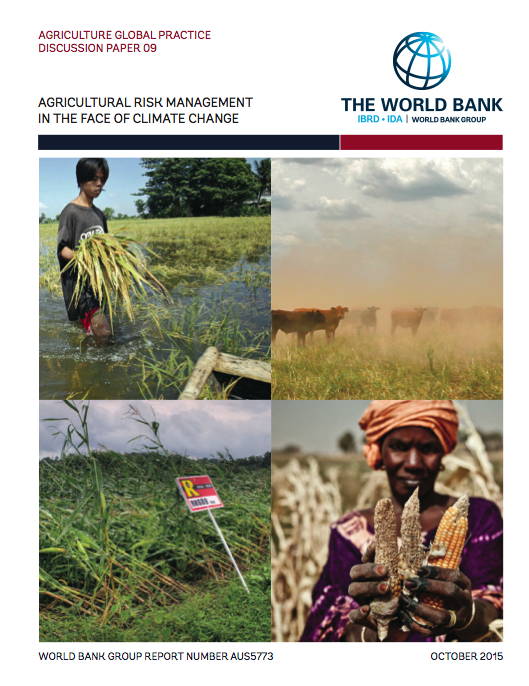Ag Discussion Paper #09: Agricultural Risk Management in the face of Climate Change
 Climate change is a source of significant risks for agricultural and food systems. Impacts from climate change are already occurring in the form of more frequent and more extreme weather events, shifts in average growing conditions, increased climate and weather variability, and more uncertainty. While climate change is expected to produce both winners and losers overall, losses will far outweigh the gains, and the poor will be disproportionally affected because of their dependence on agriculture and a lower capacity to adapt.
Climate change is a source of significant risks for agricultural and food systems. Impacts from climate change are already occurring in the form of more frequent and more extreme weather events, shifts in average growing conditions, increased climate and weather variability, and more uncertainty. While climate change is expected to produce both winners and losers overall, losses will far outweigh the gains, and the poor will be disproportionally affected because of their dependence on agriculture and a lower capacity to adapt.
Agricultural risk management (ARM) is ideally placed to support stakeholders in building resilience to these increased risks in the short and medium term. ARM frameworks and approaches can point the way to identify optimal risk mitigation, transfer, and coping strategies—and help identify appropriate actions for strengthening resilience and climate change adaptation. ARM can also play an important role in the transition to a climate-smart agriculture system by offering a useful entry point for dialogue.
This study seeks to understand the climate change impacts on agricultural risk—how do risks change?—and on agricultural risk management—how can agricultural risk managers respond? This response has two elements: First, what role can ARM play in meeting the climate change challenge? Second, how will ARM need to adapt its methodology to the “New Normal” of climate change?